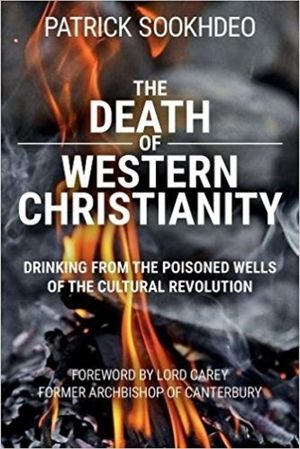This is a well-written book, subtitled ‘The death of Western Christianity: drinking from the poisoned wells of the cultural revolution’. Using various statistics, the author develops his thesis with clarity while lamenting the decline of church attendance over the decades.
He does not hold back as he surveys the evidence: ‘Since the 1960s Christian leaders have progressively betrayed the gospel’; ‘the humanist leaders were zealous and creative evangelists, surpassing the fervour of Christian missionaries’ (p.2).
He exposes the hypocrisy of those contemporary evangelical groups who fail to discern the good from bad in today’s godless Western culture, by their support for and praise of ‘raunch culture celebrities’ (p.14).
Chapters 2–4 analyse Western culture, morality and materialism. Chapters 5–8 provide a diagnosis. ‘Post-truth’ ideology is defined and, while recognising that ‘there are no absolutes in postmodern thinking’ (p.74), Sookhdeo laments that people ‘are too scared to challenge lies, because they themselves do not know what to believe’ (p.77). The intolerant marginalisation of Christianity springs from the latter’s claim that the only way to salvation is through Jesus Christ.
Chapters 9–10 explore how the loss of a Christian identity is the West’s problem today. A vacuum has been created by unbelief and Islam is poised to fill the gap. What is to be done? The author suggests that the church returns to the ‘basics of the Christian faith’, seen in creeds that should be re-incorporated into corporate worship services. Christian communities need to train their young, disciple converts, and believe the Great Commission is still operative today.
Dr Sookhdeo says what many evangelicals are thinking. He analyses the sick patient — the visible church — and gives a clear diagnosis and prognosis. We should not be surprised if it arouses opposition. It exposes hypocrisy within the visible church, and even reveals that the UK’s Foreign and Commonwealth Office considers Christian missionaries as ‘spreading prejudiced views’ and holding ‘hateful attitudes towards homosexuals, transgender and intersexuality’ (p.125).
Urgent prayer for revival is needed, as well as for wisdom and grace from God to negotiate the present climate of opposition to biblical Christianity.
Ian S. McNaughton
Wirral




